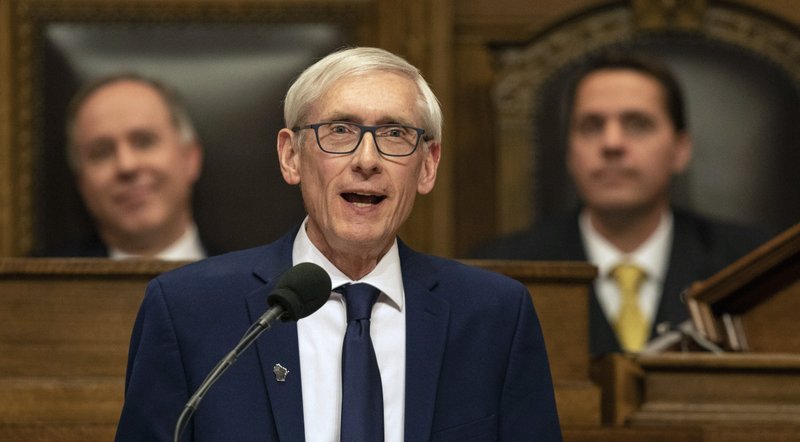Wisconsin
Viterbo’s Knutson says Republicans may not like when Evers schedules special election to replace US House seat

Republicans won’t like it.
They would do it, too, but they won’t like that Democrats might do it.

There may be at least one good thing about a political party not having control of the presidency.
With a special election needing to be held in a northern Wisconsin district to replace soon-to-be resigning Republican Sean Duffy from the U.S. House, it’s up to Democratic Gov. Tony Evers to schedule a date.
That date might be one with a big, one-sided voter turnout.
“The Democrats are going to have a contested primary,” Viterbo University political scientist Keith Knutson said of the Democrat’s presidential primary. “That will get a lot of Democrats out to vote and, if they vote in the primary up in (Duffy’s) district, they would then make a selection for the representative.”
It’s another one of those unwritten rules that allow whatever party happens to have power to somewhat manipulate how an election might swing.
“The Republicans may not like that but, undoubtedly, I would imagine, the Republicans would do that if they were in control of the governorship,” Knutson said Tuesday afternoon from the WIZM studio (listen here). “People are going to turn out to vote for a primary election. And, in this year, in this circumstance, the presumption is that would benefit the Democrats.”
There is, however, a state Supreme Court election on the ballot, as well. The last Supreme Court election in Wisconsin went to Republicans.
Of course, holding the special election at the same time as the primary will save taxpayers money, rather than holding two different votes. The other alternative is one Republicans tried to use just last year — simply not having the elections at all.
That was the alternative former Gov. Scott Walker attempted, after he appointed two Republican state legislators to posts in his administration in 2018, then refused to call special elections to fill the vacancies.
That would have left almost 250,000 in Wisconsin unrepresented for the better part of a year.
An appeals court judge informed Walker that he “has an obligation to follow the law just as do we.”
Walker refused the verdict. More court battles took place, to delay the decisions, while Walker’s administration tried to rewrite state election laws so vacancies could go unfilled.
Again, Walker argued elections would be a waste of taxpayer money. Appeals Court Judge Paul Reilly noted otherwise.
“Representative government and the election of our representatives are never ‘unnecessary,’ never a ‘waste of taxpayer resources,’” the judge said, “and the calling of the special elections are as the Governor acknowledges, his ‘obligation’ to follow by virtue of (state statute),” read the court order from Judge Reilly, which declared that Walker “has an obligation to follow the law just as do we.”
Eventually, Walker called the special elections, and then bailed on rewriting rules to block court orders, as state Assembly majority leader Jim Steineke, at that time said, “the idea of stopping elections once they’ve been ordered is probably a bridge too far.”
Gov. Tony Evers has yet to schedule an election date to replace Duffy. Evers told reporters he’s not sure if he will hold the special election during the state’s presidential primary in April. He said he’s more concerned with the best time that works with that district, than with helping Republicans.
As for Duffy, he recently announced his resignation for Sept. 23, after learning their ninth child, due next month, has a heart condition.
Duffy, who met his wife, Rachel Campos-Duff — a Fox News contributor — on an MTV reality TV show, is in a unique predicament with the unfortunate news about his upcoming newborn.
Ironically, Duffy has, multiple times, voted against protecting pre-existing conditions, as well as trying to repeal the Affordable Care Act (Obamacare) with no replacement. Now, his daughter may depend on it.
From the time of his resignation, however, Duffy will remain on his Congressional health plan through Cobra — utilizing a 1985 law that allows people to pay to stay on their employers’ health plans at their own expense for up to 18 months after leaving a job.
So far, no Democrats have come out to run for Duffy’s seat. On the Republican side, state Sen. Tom Tiffany, who environmentalists would not want to see in that seat, recently announced he would run.






